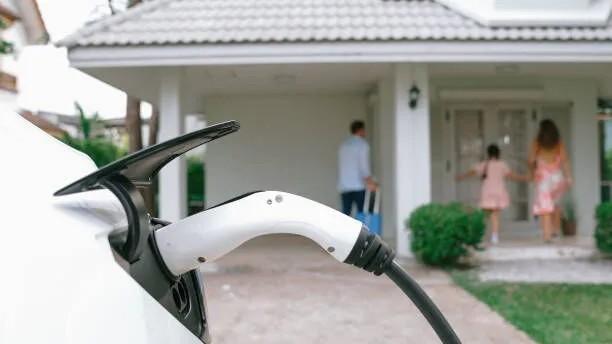Notifications

6 minutes, 53 seconds
-8 Views 0 Comments 0 Likes 0 Reviews

Guide to Home Charging Options for Electric Vehicles (EVs)
As a trusted EV charger manufacturer in China, Topper Company delivers dependable electric vehicle charging station equipment and comprehensive solutions.
As electric vehicles (EVs) gain popularity, understanding your home charging options is key to ensuring convenience and efficiency. This guide explores the different home charging solutions available, how to select the right one, and important factors to consider for an optimized EV charging setup.
Plug-in Charger (8A) The plug-in charger is the simplest and most accessible home charging option. Using a standard New Zealand household plug, it adds about 10 km of range per hour to your EV’s battery. For instance, if you plug in your EV at 7 PM and unplug it at 7 AM, you’ll gain around 120 km of range overnight. This option works best for EV owners with shorter daily driving needs or smaller battery capacities.
Caravan Plug Charger (16A) A 16A caravan-style charger (CEE plug) requires installation by a certified electrician. This option offers double the charging speed of the standard plug-in charger, providing approximately 240 km of range overnight. Ideal for those who need a quicker charge but aren’t ready to commit to a permanent wall charger.
Wall Chargers Wall chargers are the most efficient and powerful home charging solution. They provide around 40 km of range per hour, meaning most EVs can achieve a full charge overnight—about 480 km in 12 hours. Wall chargers are perfect for regular top-ups or for EVs with larger battery capacities. These chargers often feature additional capabilities like smart charging and load management.
The ideal home charger depends on your daily driving habits, the size of your EV’s battery, and your household's energy needs.
Daily Distance Traveled:
Under 100 km per day: A standard plug-in charger (8A) is typically enough for moderate driving distances.
Over 100 km per day: A 32A wall charger is recommended to ensure your EV has enough charge for daily commutes and unexpected trips.
Battery Size:
Small Battery EVs: Older models like the first-generation Nissan Leaf can easily be fully charged overnight with a standard plug.
Larger Battery EVs: Newer models, such as the Tesla or MG ZS EV, require more charging time. A standard plug might take two days to fully charge these cars, so a wall charger is a faster and more practical choice.
Smart vs. Non-Smart Chargers Many modern EVs come with built-in smart features like scheduled charging. For users seeking more advanced functionality, a smart wall charger offers features such as remote monitoring, energy usage tracking, and even solar power optimization.
Solar Integration If you have a solar energy system at home, integrating it with your EV charger can help you reduce energy costs and environmental impact. By using excess solar power to charge your EV instead of sending it back to the grid, you can lower both your carbon footprint and electricity bills.
Tethered vs. Socket Chargers
Tethered Chargers: These come with a permanently attached cable, making them convenient for everyday use. However, they usually have one connector type (Type 1 or Type 2).
Socket Chargers: These offer more flexibility, allowing you to swap out cables to accommodate different connector types. This is especially useful if you own multiple EVs with different charging ports (e.g., Type 1 for older vehicles or Type 2 for newer models).
Load Balancing Most homes have a maximum electrical capacity of 63A. If your EV charger uses 32A, it will consume about half of your home’s total capacity. While this isn't usually an issue, running high-energy appliances like spas or heat pumps at the same time could overload your electrical system. Load balancing technology adjusts the charging power to prevent this, ensuring that your household's total energy usage remains within safe limits.
Investing in a home charging setup offers several advantages:
Convenience: Charge your EV overnight while you sleep, ensuring it’s ready for the next day.
Cost-Effectiveness: Charging at home is typically more affordable than using public chargers, especially if you take advantage of off-peak electricity rates.
Energy Independence: With solar integration, you can reduce reliance on the grid and save on energy costs.
Customizable Options: Tailor your charging setup to your vehicle’s needs and your household’s energy usage.
Home charging is an essential part of owning an electric vehicle. Whether you choose a basic plug-in charger, a faster 16A solution, or a high-performance wall charger, the right option depends on your driving habits, battery size, and energy needs. By considering factors like smart features, solar integration, and load balancing, you can create an efficient and sustainable charging solution tailored to your lifestyle. Transitioning to electric mobility is easier than ever, and with the right home charging setup, you can enjoy all the benefits of EV ownership.Know more about Google SEO Directory
China EV Chargers EV Charger Manufacturer EV Charging Solutions

